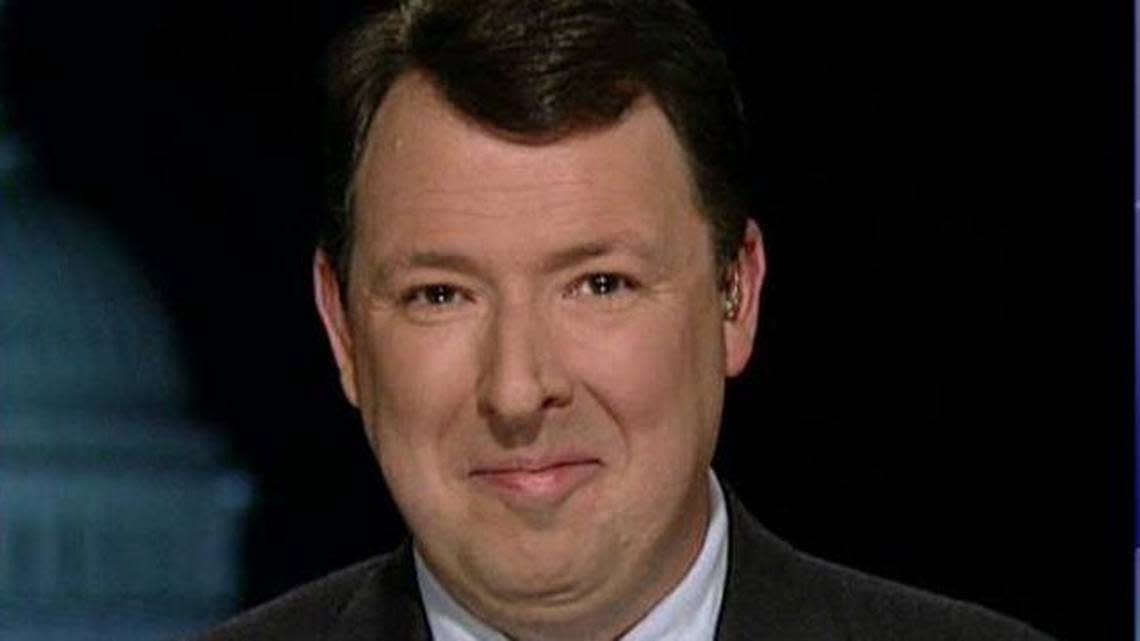Unlike his ailing predecessor, Benedict XVI chose to ‘come down from the cross’ | Guest Opinion
Five days before his death in 2005, Pope John Paul II came to his window overlooking St. Peter’s Square to deliver what would have been his final Easter Sunday message. But when he opened his mouth, nothing came out. Many in the square, and millions more watching on television, were moved to tears as he repeatedly tried, in palpable pain, to deliver his Easter blessing before finally sinking back into his chair, banging his fist in frustration.
In that instant, carrying on through his agony, John Paul stood as a rebuke to a utilitarian world that increasingly embraces a culture of death that discards the weakest among us — from the unborn to the elderly — treating them as a burden and inconvenience. With his silent witness, John Paul affirmed the intrinsic value of every human life, including those who are infirm, isolated and abandoned by society. As his suffering intensified in his last years, he had been asked: Why do you not simply resign? Because, he reportedly said, “Christ did not come down from the cross.”
His successor, Pope Benedict XVI, chose to come down from the cross.
As his own health worsened in 2013, Benedict relinquished the chair of St. Peter “for the good of the church.” No doubt Benedict, who died Dec. 31 at age 95, did it out of a selfless love for God’s people, whom he felt he could no longer adequately serve. But nearly a decade later, we know his abdication was a terrible, tragic mistake.
Benedict never wanted to be pope. He said his election by the College of Cardinals felt “like a guillotine.” He had hoped to retire to a quiet life studying theology.
But God had other plans — so Benedict became one of the greatest theologians ever to be named pope. This became apparent to the world even before his election when, as Cardinal Joseph Ratzinger, he delivered his now famous homily at John Paul’s funeral, warning of “a dictatorship of relativism that does not recognize anything as definitive and whose ultimate goal consists solely of one’s own ego and desires.” We must not be like children “tossed about by the waves” of “trends of fashion and the latest novelty,” Ratzinger said; rather, we must pursue a deeply rooted “friendship with Christ” that “opens us up to all that is good and gives us a criterion by which to distinguish the true from the false, and deceit from truth.”
Truth and love are inseparable, Ratzinger said, because, “Love without truth would be blind; truth without love would be like ‘a clanging cymbal.’ ”
Throughout his papacy, he preached the Gospel of love in truth — teaching that “to defend the truth, to articulate it with humility and conviction” is an indispensable form of charity because, “Only in truth does charity shine forth, only in truth can charity be authentically lived.”
He embraced tradition and restored access to the pre-Vatican II liturgy, while continuing John Paul’s ecumenical outreach and leading the church in the modern world. And his message of doctrinal clarity delivered in charity inspired a new generation of young men to discern their vocations to the priesthood.
But Benedict’s extraordinary papacy is blemished by his fateful decision to resign. His abandonment resulted in the election of a new pope, Francis, who has sown confusion instead of clarity.
The papacy of Francis is in so many ways the antithesis of Benedict’s. Benedict was like the good doctor who, out of love, tells his sick patient the hard truth: You need to change your life — stop smoking, drinking and sinning — or you will die. Francis is like the bad doctor who won’t tell the sick patient the depth of his illness, allowing him to persist in his self-destructive ways — and thinks his silence is an act of mercy. It isn’t.
In our deeply confused world, where we are urged to reject truth in the name of love, we need the church to teach boldly, as Benedict did, that, “Truth and love coincide in Christ.” In the wake of Benedict’s resignation, this teaching has been absent — and the dictatorship of relativism has taken an even deeper hold over society.
Just as Benedict did not follow the example of his predecessor, who showed in his continued service the salvific power of suffering, Francis has not followed to the example of his own predecessor, who warned us of the dangers of separating truth from love.
The church and the world have been impoverished as a result.
Marc Thiessen writes a twice-weekly column for The Washington Post on foreign and domestic policy.
The Washington Post

